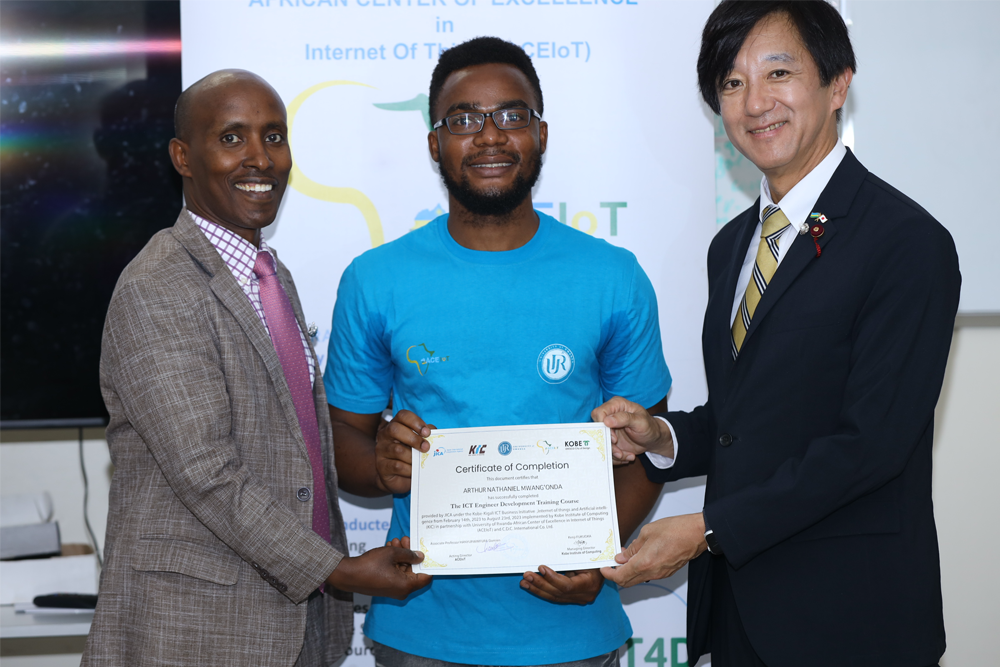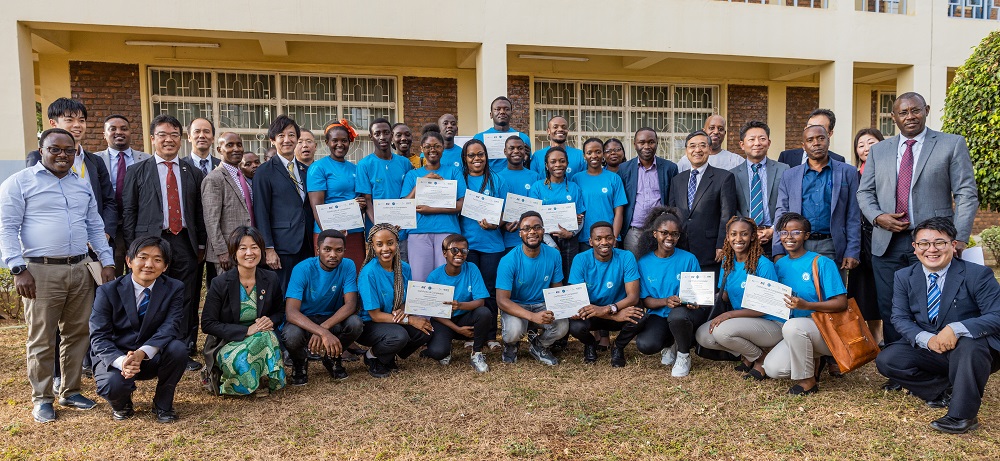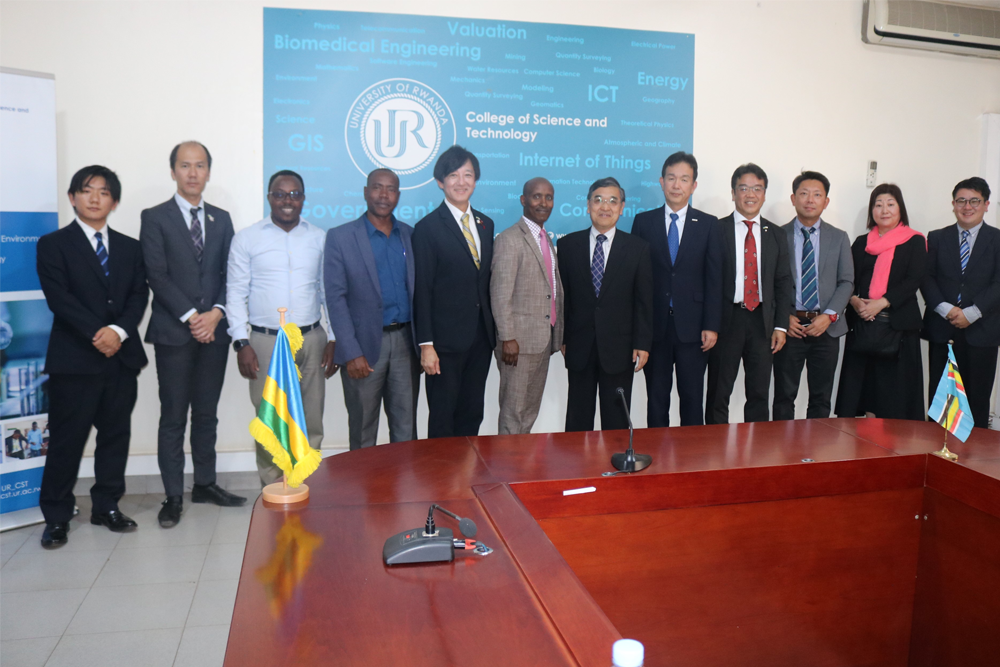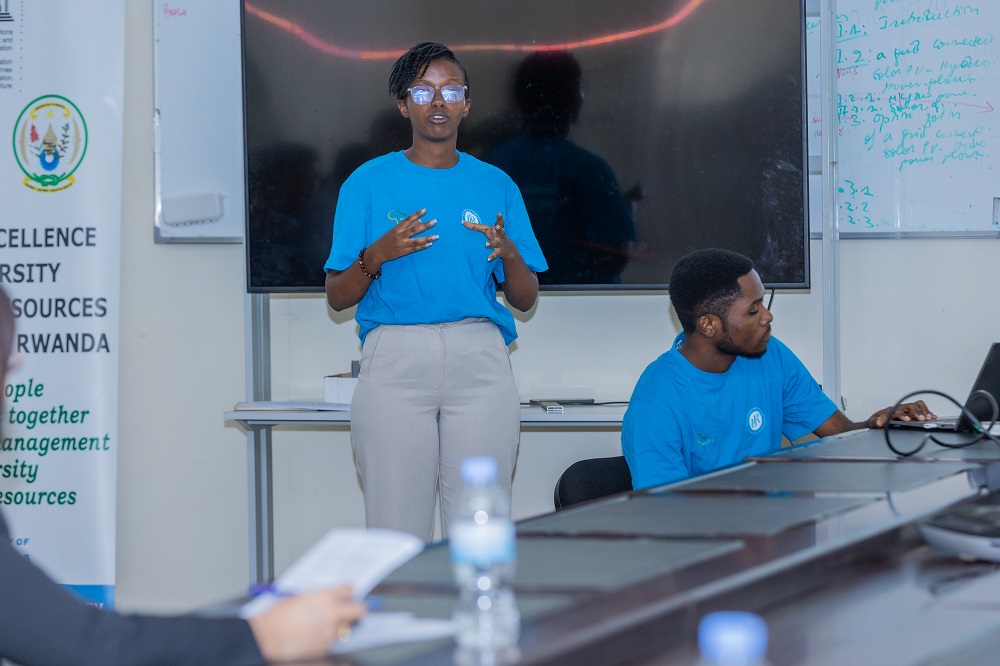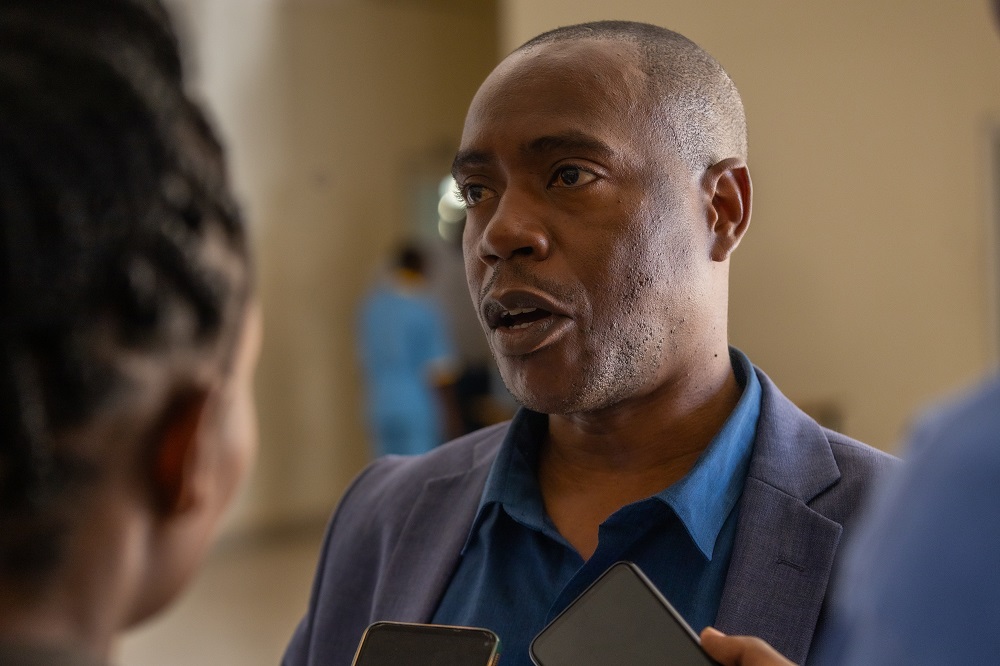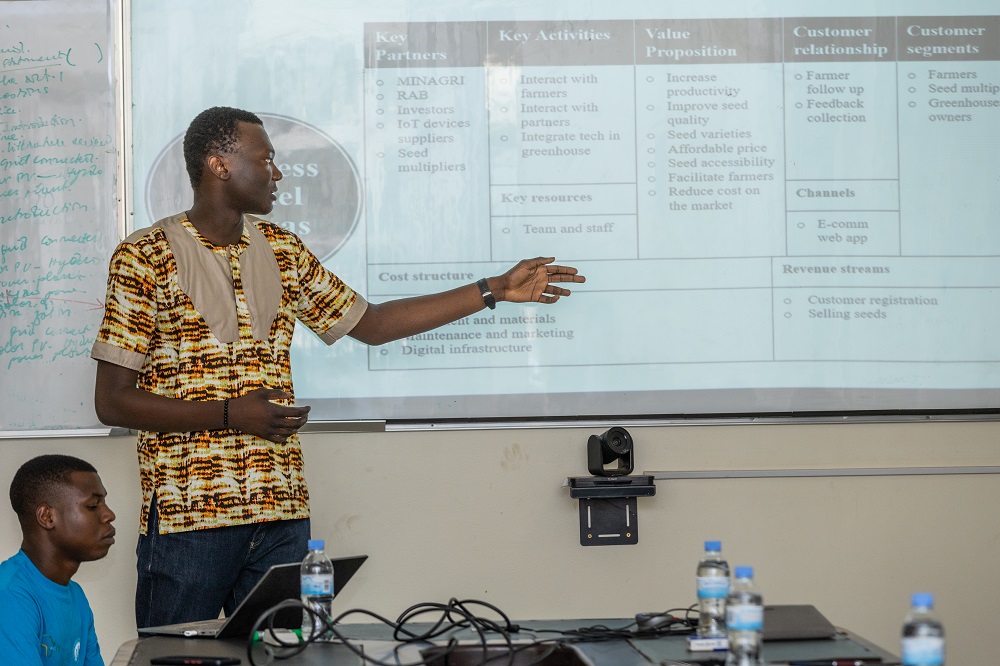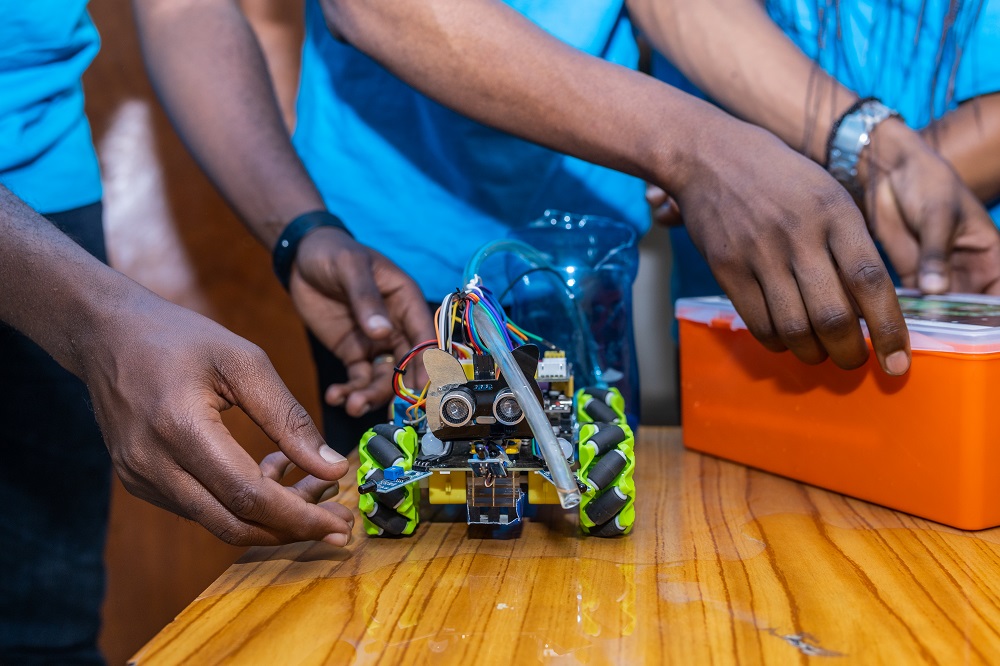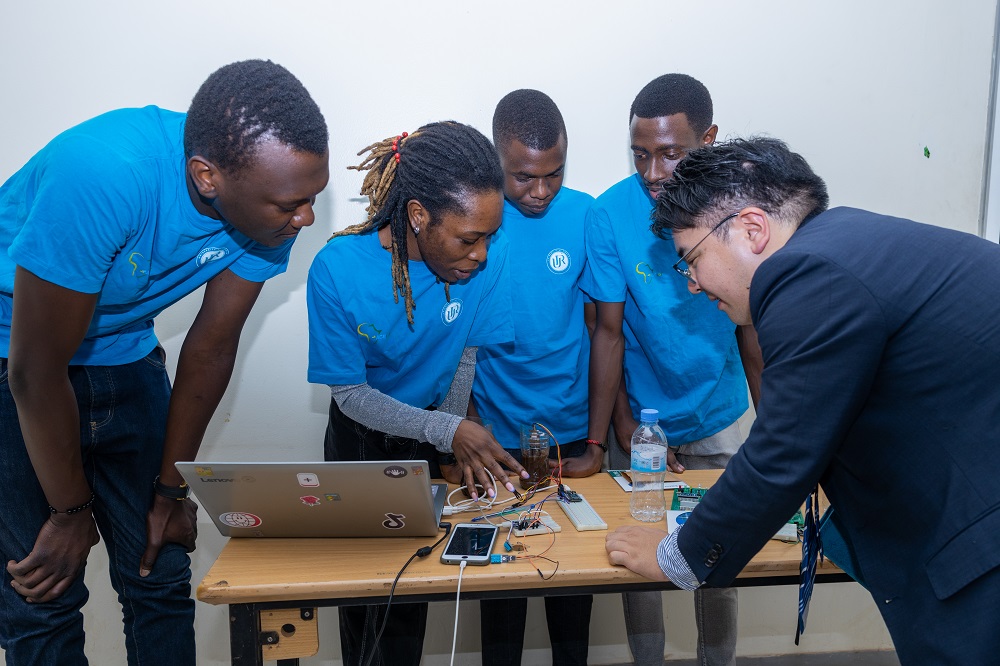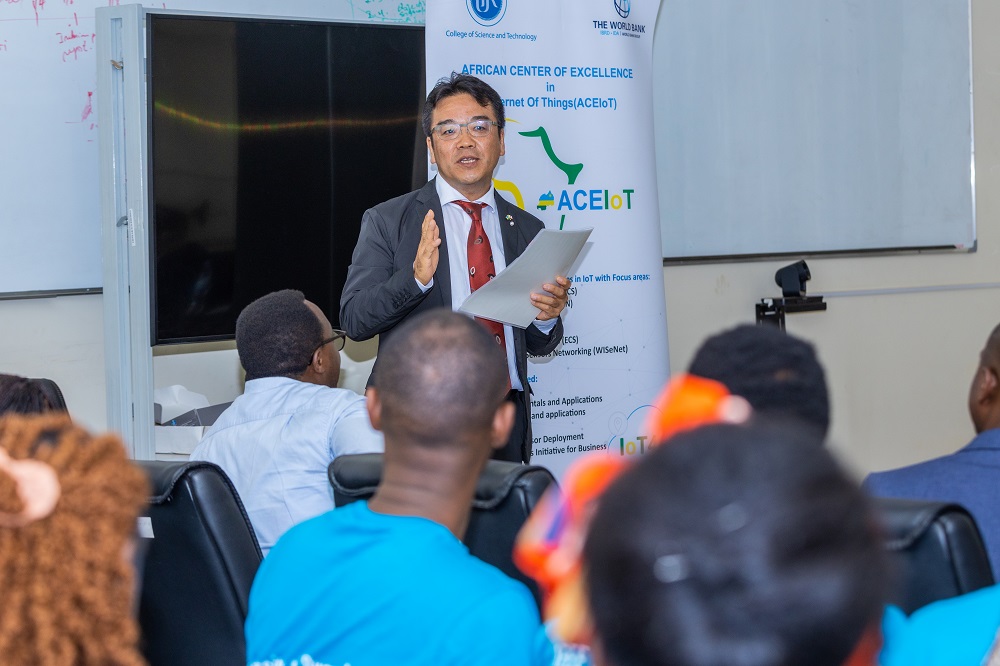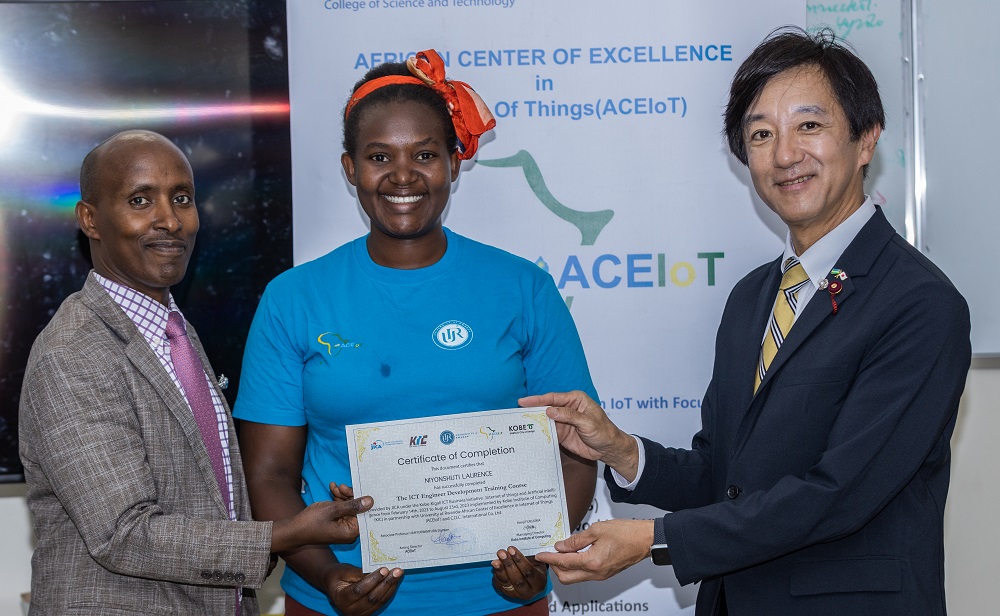UR’s ACEIoT empowers youth with AI, Internet of Things training for thriving ICT careers
The University of Rwanda’s African Centre of Excellence in Internet of Things (ACEIoT) in partnership with JICA Rwanda, Kobe Institute of Computing (KIC), and DCD Japan International, concluded a six-month training programme dubbed ICT human development initiative for business development.
The ceremony marking the completion of the training was held on Wednesday, August 23 and was attended by delegates from Japan namely Kawanami Tadakazu, Vice Chairman of Kobe City Assembly, Fukuoka Kenji, Director of Kobe Institute of Computing, Miyashita Takayuki, Former Ambassador of Japan to Rwanda, Shotsuka Minako, Representative of JICA in Rwanda and Burundi, alongside other key stakeholders.
The training, which included Internet of Things (IoT) and Entrepreneurship courses, aimed to empower Rwandan youth and promote employment opportunities within the country’s growing ICT industry. Aiming to address the government’s aspiration for youth-led job creation, this collaborative effort seeks to capitalise on the tech-driven era, particularly in fields like Artificial Intelligence and Internet of Things.
In his remarks Principal of UR’s College of Science and Technology Dr Ignace Gatare said: "This training centred around entrepreneurship with the aim of bolstering employability, and it seamlessly resonates with one of UR’s 10 graduate attributes; enhancing employability and career development."
"We expect that the skills acquired by these trainees will be channelled towards addressing societal challenges, becoming proactive solution providers, and assuming roles as responsible agents of change. We encourage you to continually add value to your communities and perpetuate innovation," Gatare added.
Conversely, Kawanami Tadakazu, Vice Chairman of Kobe City Assembly, commended the existing partnership with University of Rwanda and assured the continued support to different development projects.
In a press interview, Damien Hanyurwimfura, Associate Professor and Acting Director of ACEIoT, emphasised the relevance of the training in light of the government’s push for youth-led job creation. He stated, "Our government wants youth to create jobs, especially in tech. That’s why these training sessions are relevant. This is the age of AI and IoT. The skills imparted ensure a comprehensive understanding of these fields, and we actually want them to create jobs after this – start-ups, and more."
Hanyurwimfura added, "We’re trying to establish a new centre here dedicated to following up on their ideas and nurturing them to fruition. Young Africans have the potential to innovate in the tech space, and hopefully, we’ll see an increase in ’Made in Rwanda’ products aimed at solving citizens’ problems. We had two cohorts, and one more remains to be trained to complete the project."
One of the trainees, Penine Ngizwenayo, a fresh graduate in Computer and Software Engineering, shared insights into the practical impact of the training.
She said, "We surveyed and ventured into local communities to identify the challenges they face. Following this, we thoroughly analysed the gathered data and applied our training expertise in IoT and AI to devise innovative solutions.”
“Take our group as an example – noticing the recent disasters that have affected Rwanda, we developed an alarm system designed to mitigate floods. Our project aims to detect areas at risk of disasters, particularly floods. Citizens would receive alerts through buzzers, flashing lights, and phone notifications, all tailored to the level of risk. Our system, strategically positioned near rivers, monitors water levels and promptly notifies or alarms individuals when the water level reaches a critical point. With adequate funding and guidance, this initiative has the potential to significantly benefit numerous people," Ngizwenayo said.
The programme catered to diverse participants, including six master’s students from ACEIoT, seven University of Rwanda alumni, and six undergraduate ICT students, totalling 19 trainees hailing from countries including Malawi, Chad, DR Congo, and Rwanda.
It is funded by JICA Rwanda and it runs in ACEIoT, facilitated by KIC Alumni in Rwanda and KIC professors.
The trainees also collaborated on group projects that showcased their innovative problem-solving skills, and stakeholders at the event expressed their intention to sponsor selected projects from this intake.
Before the ceremony delegates from Japan met with the Principal of College of Science and Technology Dr. Ignace Gatare. They discussed existing collaboration with University of Rwanda and how to enhance it.

